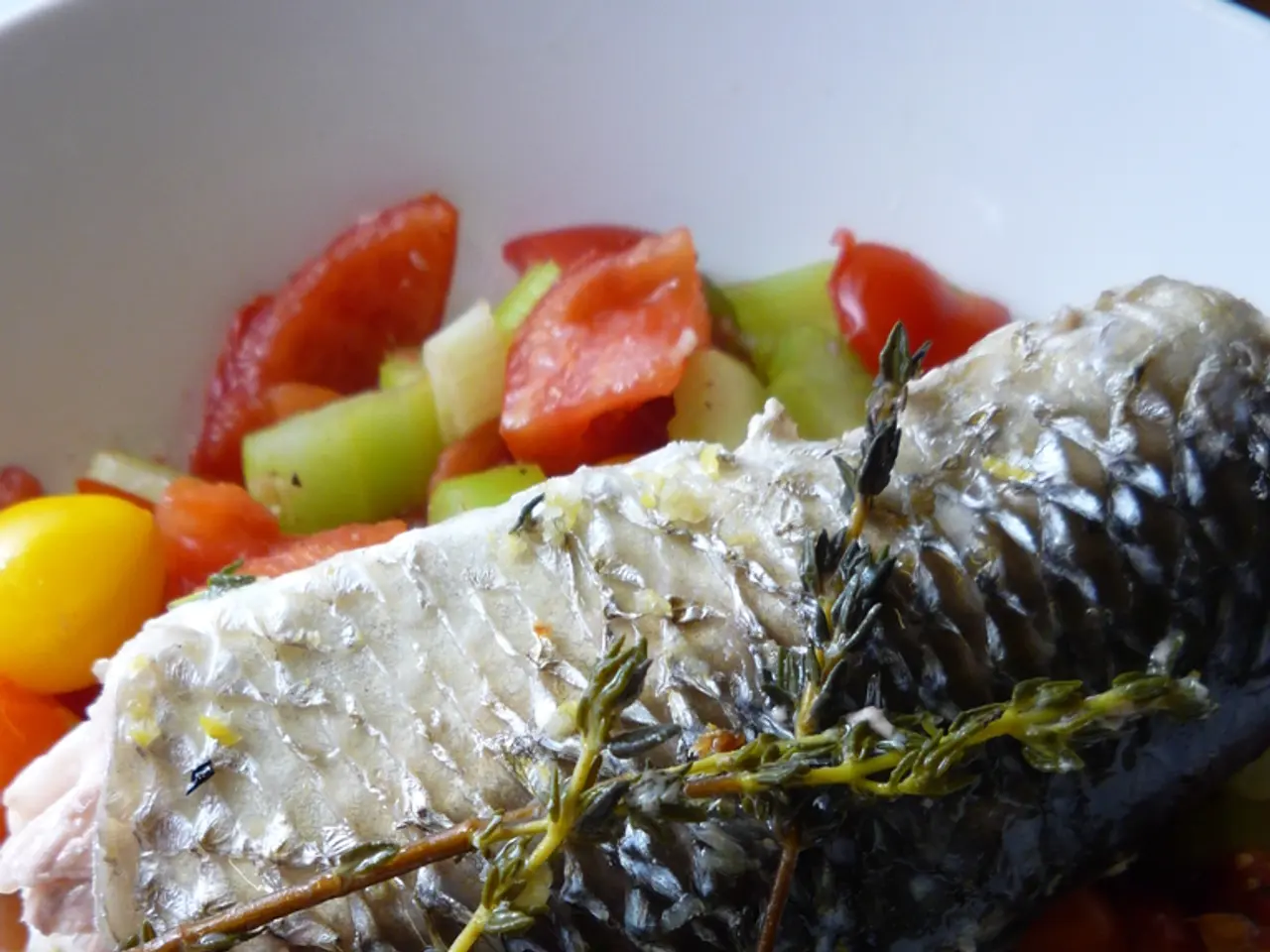Agriculture Minister Rainer repeatedly serves meat in his capacity.
In a significant shift, Germany's Federal Ministry of Agriculture has adopted a new food policy for official events, prioritising plant-based and sustainable options. This policy change, announced by Minister Alois Rainer in the "Bild" newspaper, marks a departure from the regulation introduced by his predecessor, Cem Özdemir [1].
Minister Rainer, a member of the CSU political party, has emphasised his preference for regional products at official events, while also acknowledging and respecting the choice of vegetarian and vegan diets [2]. His policy does not detail any changes to the exceptions under Özdemir's regulation, such as the open day and receptions during the Green Week [3].
Under Özdemir's regulation, only vegetarian food made from 100 percent organic products was served at official ministry events, with exceptions for certain occasions [4]. However, Minister Rainer plans to serve both vegetarian products and meat and fish at official events of the Federal Ministry of Agriculture [5]. He has not expressed any plans to reintroduce the regulation of serving only vegetarian food made from 100 percent organic products at official ministry events [6].
The new policy aligns with recommendations from the German Nutrition Society (DGE) and scientific advisory boards, advocating for the ideologically neutral inclusion of plant-based, fermentation-based, and cultivated meat products alongside traditional animal-based foods at official settings [1][2]. It is part of Germany’s goal to improve public health and reduce environmental impact through sustainable food systems by 2050 [1].
Minister Rainer's food policy follows the 2024 updated Food-Based Dietary Guidelines, which recommend colorful, healthy, and sustainable eating largely centered on plant-based foods [1]. A recent scientific report by the advisory board to the Ministry underlines the importance of protein diversification and the integration of alternative proteins, calling these foods a legitimate part of official nutrition offerings [2].
Despite his personal background as a trained butcher, Minister Rainer expresses tolerance towards different dietary habits and does not intend to start a "culture war" over food choices or refrigerator contents [7]. He believes that food should be enjoyable and fresh, regardless of dietary restrictions [8].
The change in food policy at the Federal Ministry of Agriculture does not specify any immediate effects [9]. However, it is consistent with Germany’s broader agricultural and nutrition policies promoting organic farming, reduction of synthetic inputs, and sustainable food practices [3][4].
[1] https://www.bundesregierung.de/breg-de/themen/ernaehrung-und-landwirtschaft/1911380 [2] https://www.dge.de/downloads/leitlinien/leitlinien-ernaehrung-2024/ [3] https://www.bundesregierung.de/breg-de/themen/landwirtschaft-und-ernaehrung/1911380 [4] https://www.bundesregierung.de/breg-de/themen/landwirtschaft-und-ernaehrung/1911380 [5] https://www.bild.de/politik/deutschland/minister-rainer-will-vegetarier-und-fleisch-essen-lassen-37694614.bild.html [6] https://www.tagesspiegel.de/politik/landwirtschaftsminister-rainer-will-vegetarier-und-fleisch-essen-lassen/27603044.html [7] https://www.spiegel.de/politik/deutschland/landwirtschaftsminister-rainer-will-vegetarier-essen-lassen-a-7d0f1817-846f-4d4e-a34a-d5b83567d38a [8] https://www.spiegel.de/politik/deutschland/landwirtschaftsminister-rainer-will-vegetarier-essen-lassen-a-7d0f1817-846f-4d4e-a34a-d5b83567d38a [9] https://www.tagesspiegel.de/politik/landwirtschaftsminister-rainer-will-vegetarier-und-fleisch-essen-lassen/27603044.html
- Minister Rainer's food policy at the Federal Ministry of Agriculture aligns with recommendations from the German Nutrition Society (DGE) and scientific advisory boards, encouraging the inclusion of plant-based, fermentation-based, and cultivated meat products alongside traditional animal-based foods, as part of a broader goal to improve public health and reduce environmental impact through sustainable food systems by 2050.
- The new policy also supports protein diversification and the integration of alternative proteins, deeming these foods a legitimate part of official nutrition offerings, in line with the 2024 updated Food-Based Dietary Guidelines' recommendation for colorful, healthy, and sustainable eating largely centered on plant-based foods.




